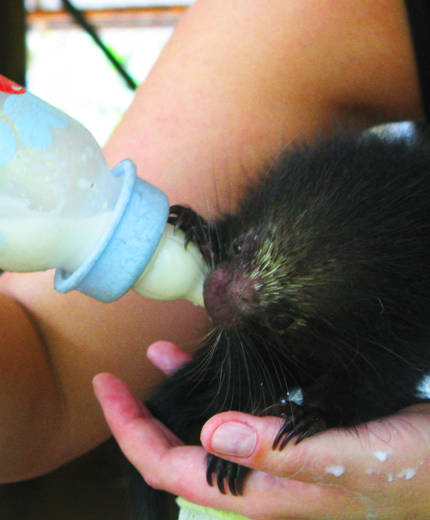Heb je een passie voor dieren en wil je een verschil maken in het leven van dieren in nood? Zo ja, zoek dan niet verder! Wij bieden unieke mogelijkheden voor vrijwilligerswerk over de hele wereld en werken samen met mensen die zich inzetten voor de verbetering van het welzijn van dieren. Of het nu gaat om het redden, behouden, vrijlaten of rehabiliteren van dieren, iedereen kan wel zijn steentje bijdragen waar dat het meest nodig is.
Vrijwilligerswerk met dieren op wildlife beschermingsprojecten
Bij onze wildlife beschermingsprojecten is het de bedoeling dat je een essentiële bijdrage levert aan bedreigde diersoorten. Als je bij een van onze projecten komt werken, krijg je praktijkervaring en een kans om achter de schermen mee te werken aan de bescherming van 's werelds meest waardevolle dieren in het wild. Ethische behandeling van dieren is erg belangrijk voor ons, en we zouden het niet prettig vinden om reizigers naar projecten te sturen waar we niet 100% achter staan. Daarom hebben we onze natuurbeschermingsprojecten zorgvuldig geselecteerd en werken we samen met de meest toegewijde mensen die je ooit zult ontmoeten. Zo kan je er zeker van zijn dat jouw inspanningen echt een verschil zullen maken.
Wij geloven dat alle dieren een gelijke kans moeten krijgen. Door vrijwilligerswerk bij onze projecten te doen, draag je je steentje bij om dit te realiseren. Je kunt 1 tot 6 weken vrijwilligerswerk doen en dieren helpen zoals olifanten, Afrikaanse grote katten, schildpadden, pinguïns en orang-oetans. Je kan ook helpen bij de behandeling van huisdieren in arme wijken waar de meeste mensen zich geen dierenarts kunnen veroorloven. Wat jouw vaardigheden ook zijn, wij hebben projecten die veel waarde hechten aan wat jij kan.
Dus, waar wacht je nog op? Doe mee en help een echt verschil te maken in het leven van dieren in nood. Lees hieronder meer over onze projecten en ontdek hoe je vandaag nog betrokken kan raken of neem meteen contact op!
Neem contact met ons op!


